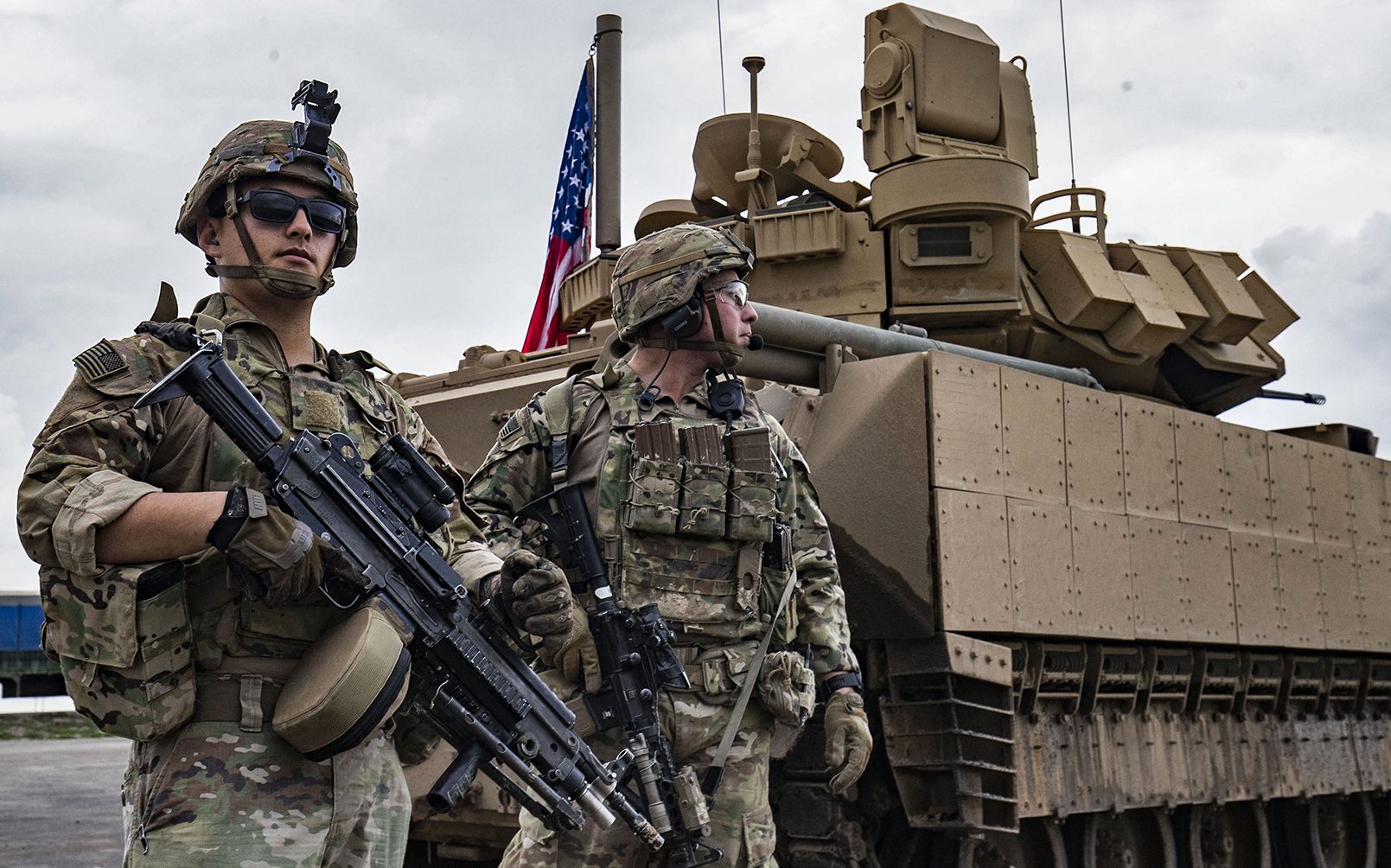

U.S. troops deployed to Iraq and Syria came under four rocket attacks in three days last week, U.S. officials told Task & Purpose. With those rapid-fire incidents, July saw the most attacks against American forces in the region in months.
No American service members were wounded in the most recent attacks, which were against Al Asad Air Base in Iraq and Mission Support Site Euphrates in Syria, the U.S. officials said.
The recent string of attacks began when two rockets were fired at Al Asad Air Base on July 25, neither of which hit the base, the U.S. officials said.
Mission Support Site Euphrates was also attacked on July 25, 26, and 27, during which one rocket hit the base, causing no injuries, the officials said. U.S. troops returned fire after one of the attacks.
July has seen a sharp increase in attacks against U.S. troops in Iraq and Syria. On July 16, two drones attacked Al Asad Air Base, one of which struck the base and caused “minimal damage,” Deputy Pentagon Press Secretary Sabrina Signh told reporters earlier this month. U.S. and coalition forces also destroyed a drone near Green Village, Syria, but it is unclear what the drone’s target was.
Although U.S. officials are not saying which groups they believe carried out the attacks, Singh told reporters on July 18 that groups backed by Iran’s Islamic Revolutionary Guard Corps had launched attacks against U.S. forces in the past.
“Most likely than not it is one of those affiliate groups, but I can’t give you specifics other than that,” Singh said at a Pentagon news conference.
Subscribe to Task & Purpose today. Get the latest military news and culture in your inbox daily.
Following Hamas’ Oct. 7 terror attack on Israel, American forces in the Middle East were targeted by the “Islamic Resistance of Iraq,” an umbrella organization of Iranian-backed groups. Three Army Reserve soldiers were killed in January by a drone attack on a base in Jordan known as Tower 22.
The U.S. military responded in February by striking 85 targets in Iraq and Syria and killing a senior leader of an Iranian-backed group.
Attacks against U.S. troops in the Middle East mostly subsided after February, with the exceptions of an April 21 attack on the Rumalyn Landing Zone in Syria and an April 22 attack on Al Asad Air Base.
Iran exerts “a great degree of control” over the militia groups that began attacking U.S. troops in the Middle East in the fall, said Army Maj. Gen. Joel “JB” Vowell, who leads all American service members in Iraq and Syria as part of Operation Inherent Resolve.
Iran’s goals include exporting its revolution to the rest of the Middle East to become the supreme power in the region, Vowell told Task & Purpose in June. He added, “Iran will fight to the last proxy.”
Amid the proxy war between Iran and the United States, the Islamic State group is trying to reconstitute itself, according to U.S. Central Command, or CENTCOM. ISIS launched more attacks in the first half of 2024 than it did during all of 2023.
“At this rate, ISIS is on pace to more than double the total number of attacks they claimed in 2023,” CENTCOM announced in a July 16 news release.
Speaking to Task & Purpose, Vowell said ISIS is greatly diminished from where it was a few years ago, and the group is only capable of conducting small ambushes and attacks in Iraq and Syria.
However, the underlying conditions that allowed ISIS to emerge remain unresolved in Syria, he said.
“The root causes of instability that gave birth to ISIS are still there,” Vowell said. “There’s economic challenges in the Sunni areas, quite frankly. Those instability challenges are there: lack of education, lack of opportunity, lack of jobs. And extremism is still fomenting out in the deserts in the Middle Euphrates River Valley, in the Sunni tribes.”
The latest on Task & Purpose
- Marine recruit arrives at boot camp with glorious mop top
- Navy sinks USS Tarawa in latest Pacific SINKEX
- A USS Eisenhower pilot became the first American woman to score air-to-air kill
- Special Forces Assessment and Selection: Everything You Need To Know
- NORAD sent 3 different fighters to intercept Russian and Chinese bombers
